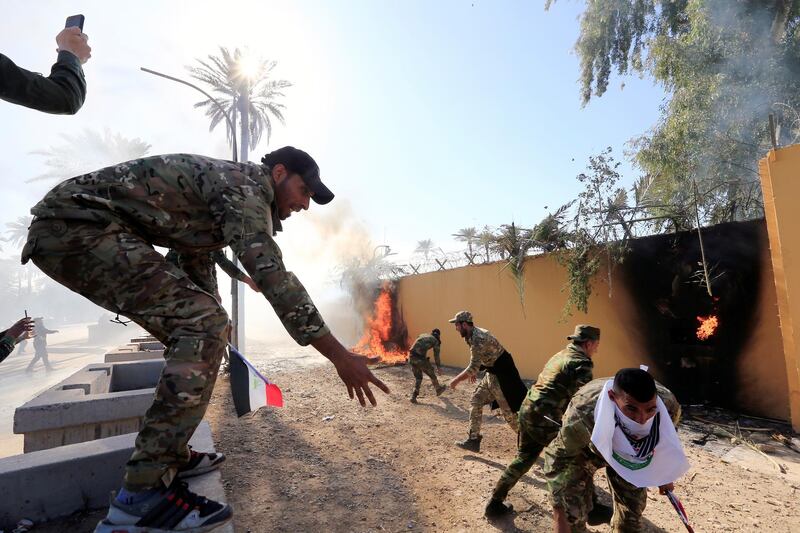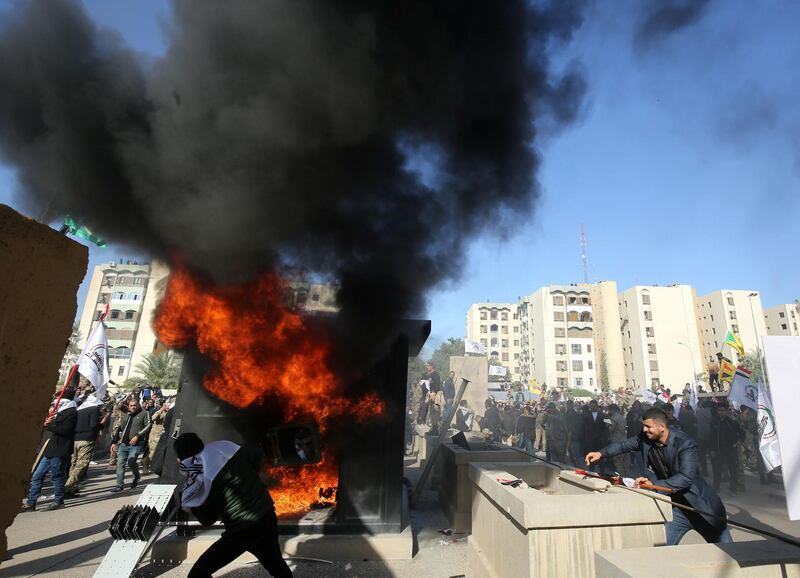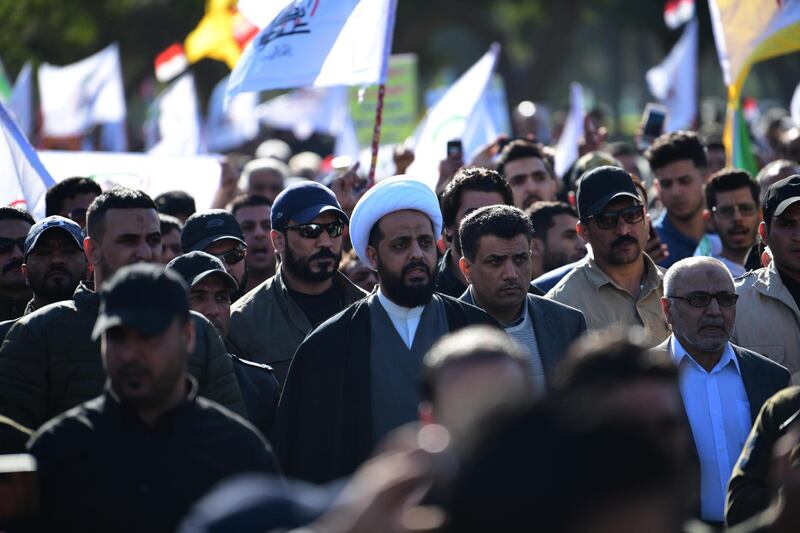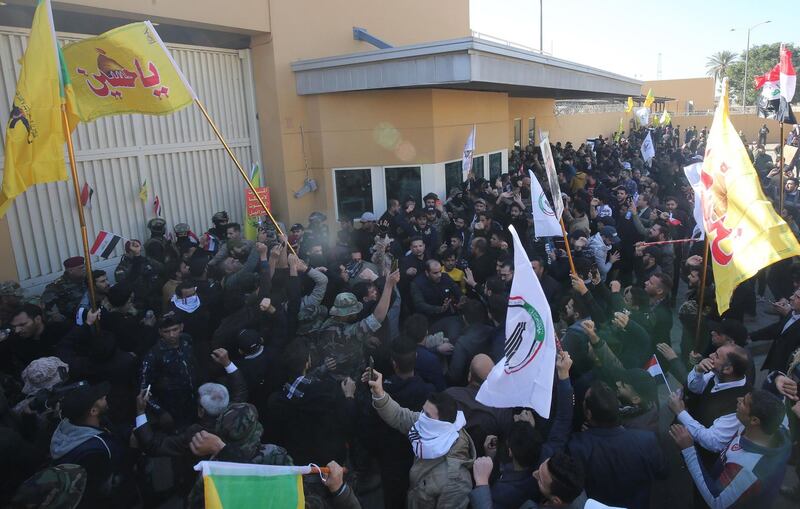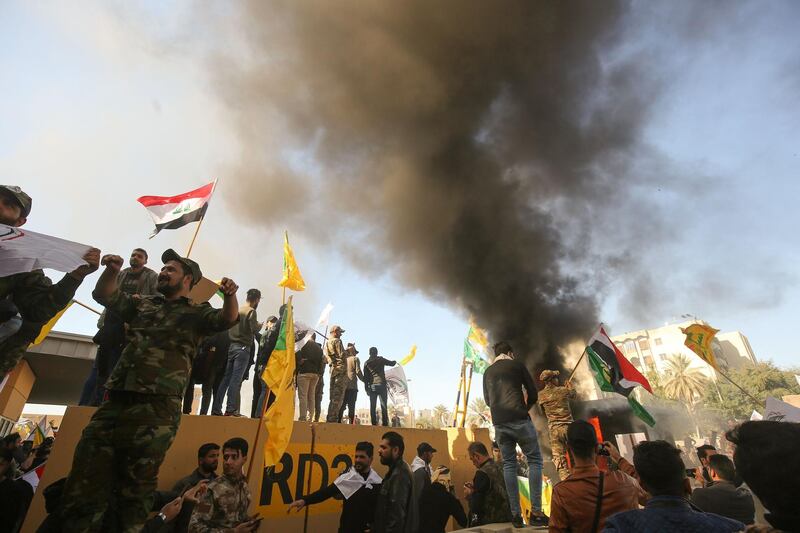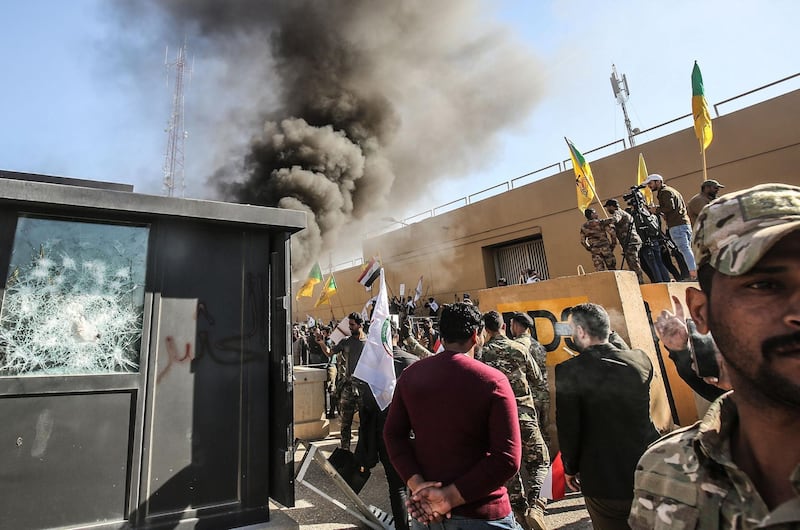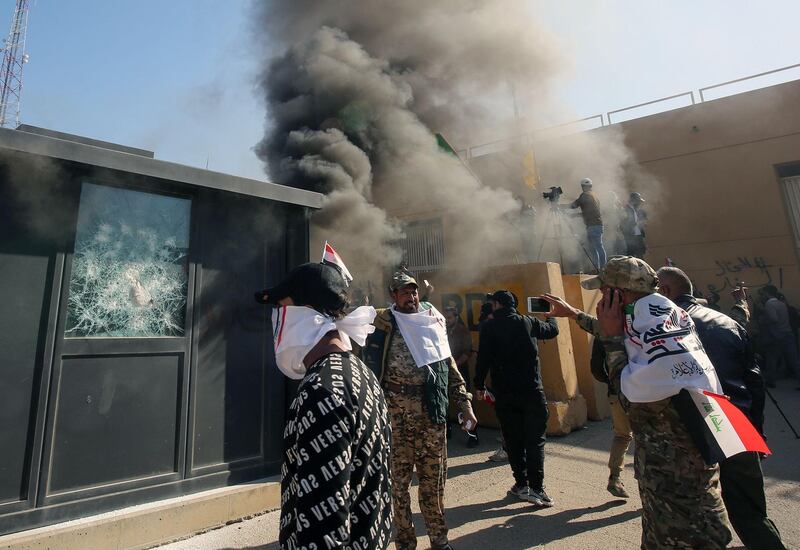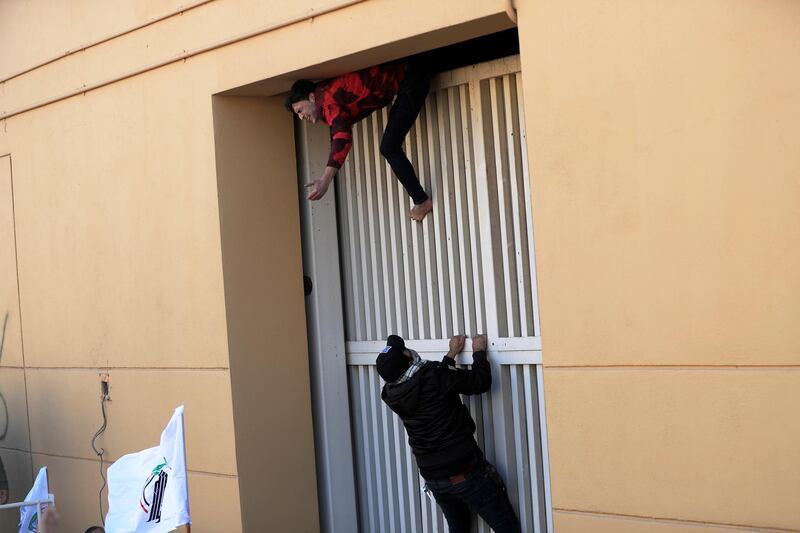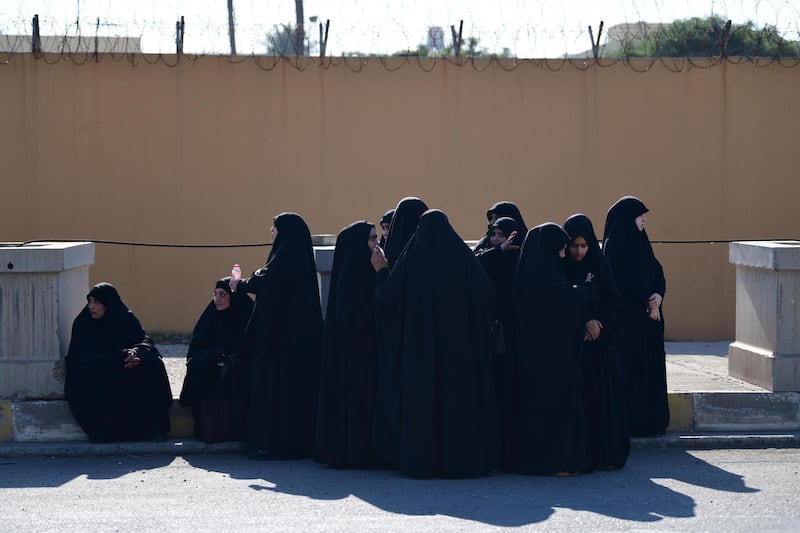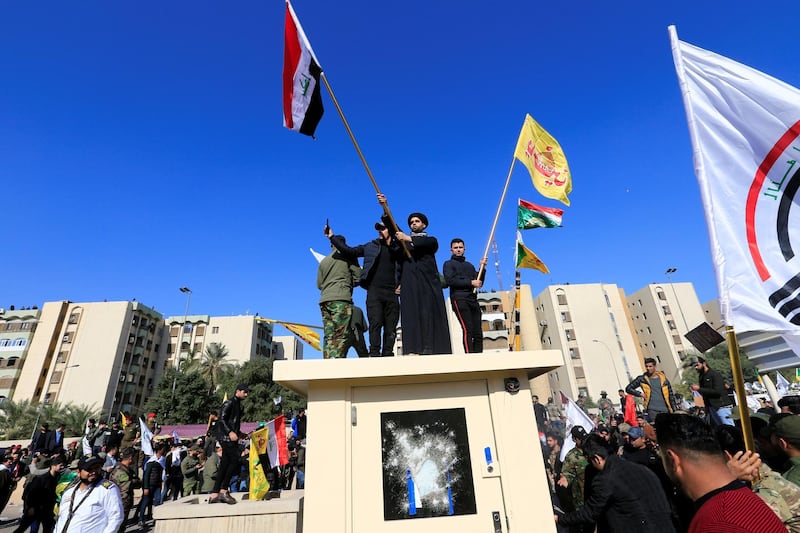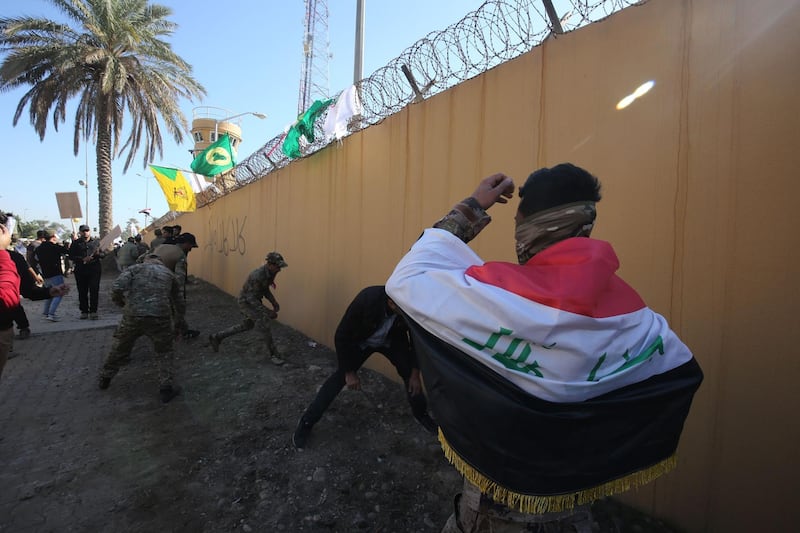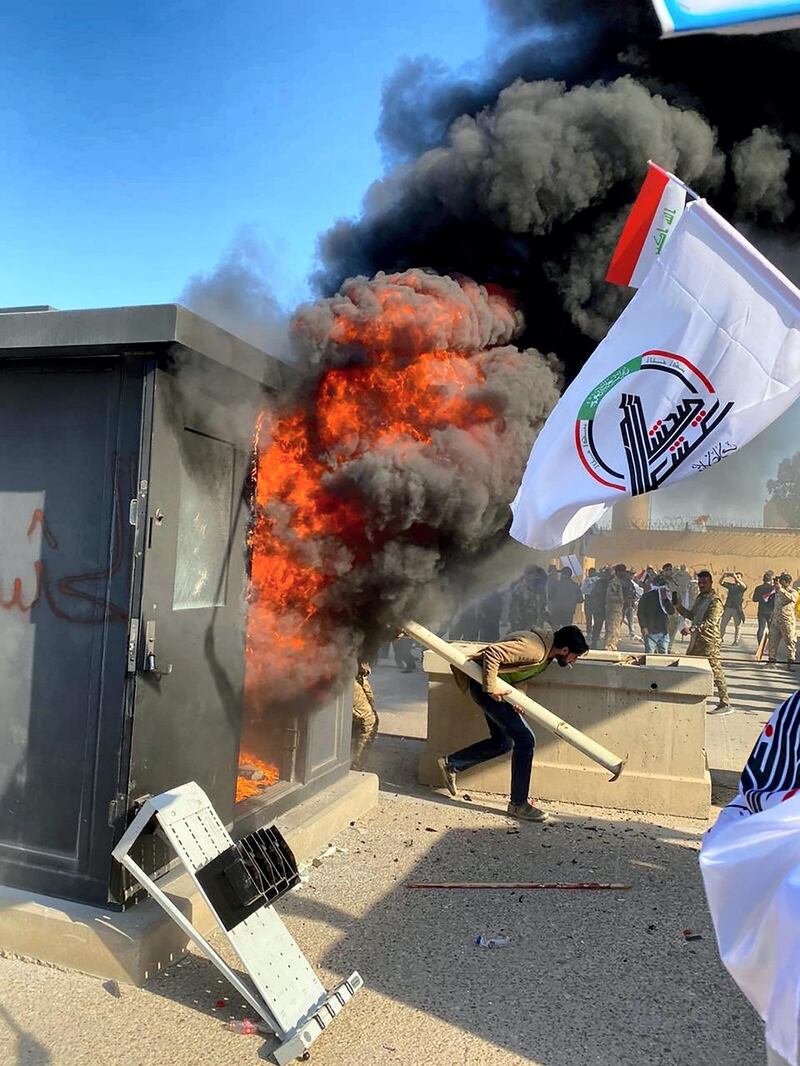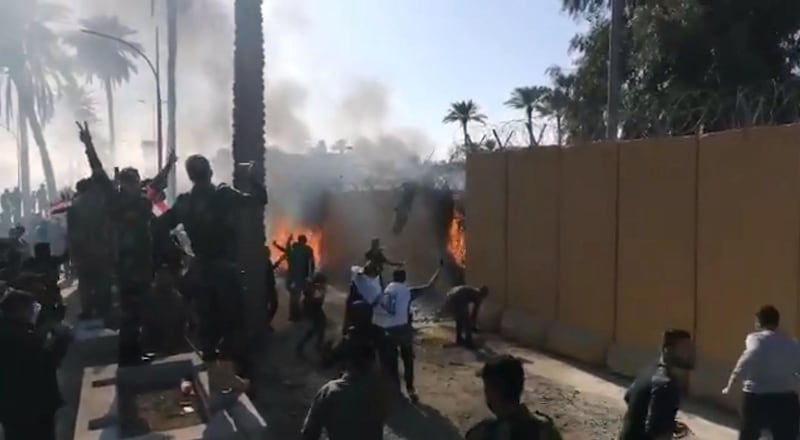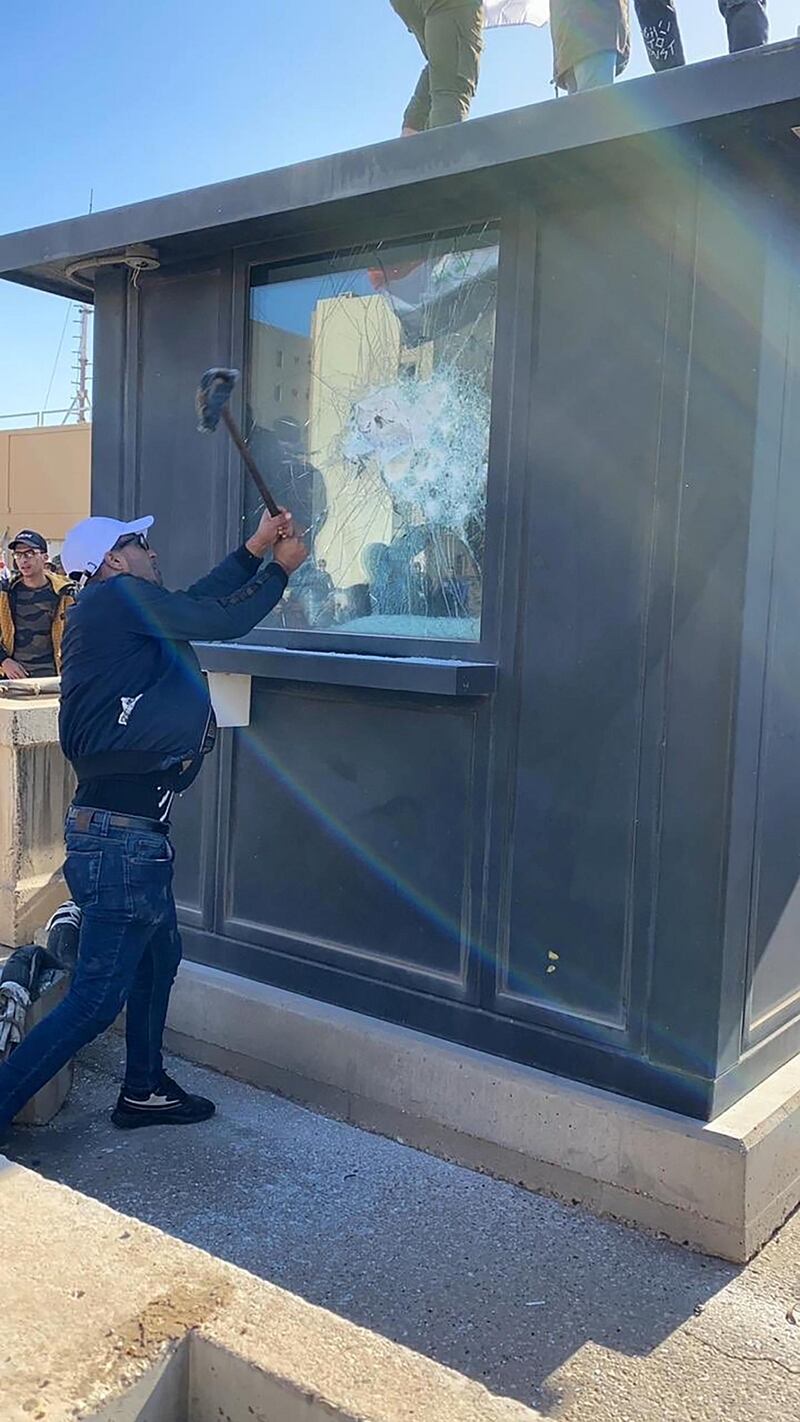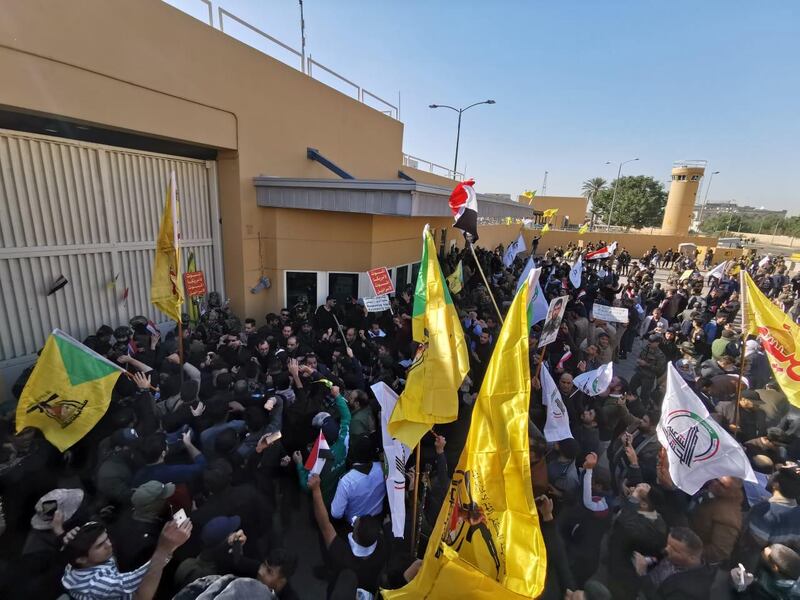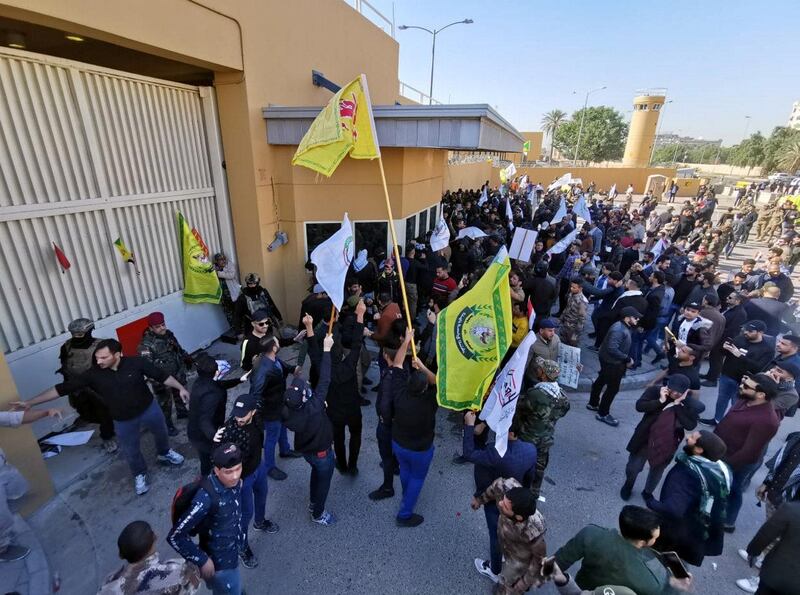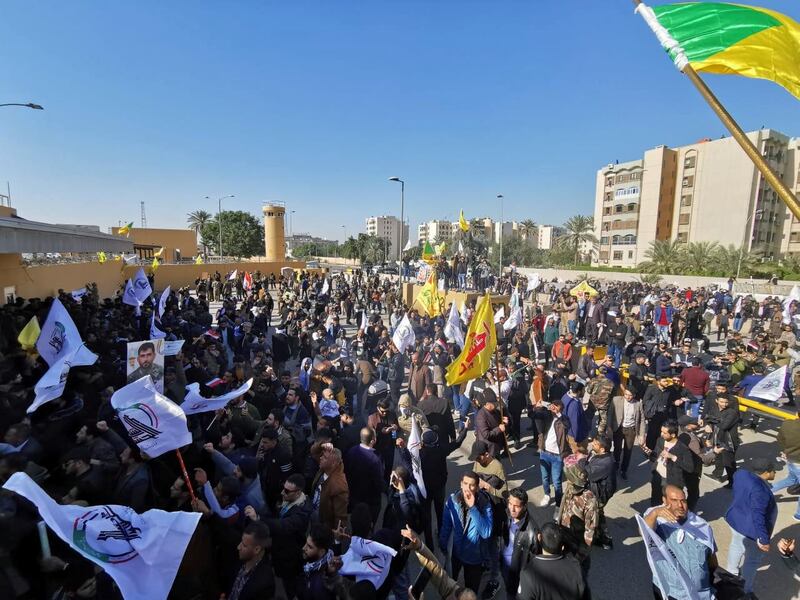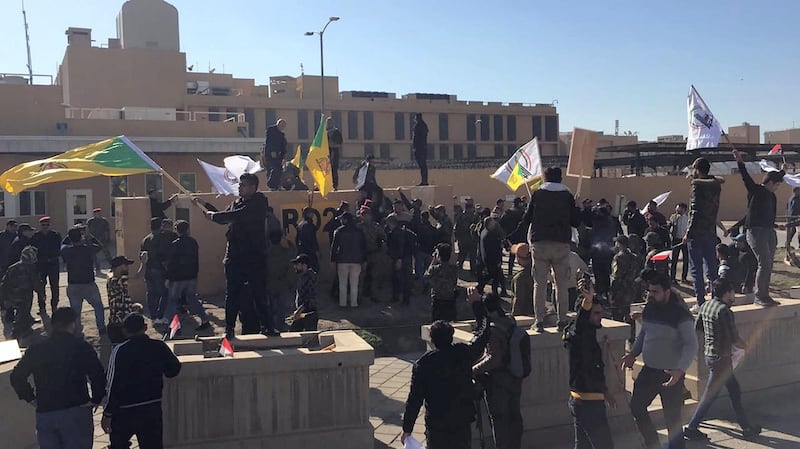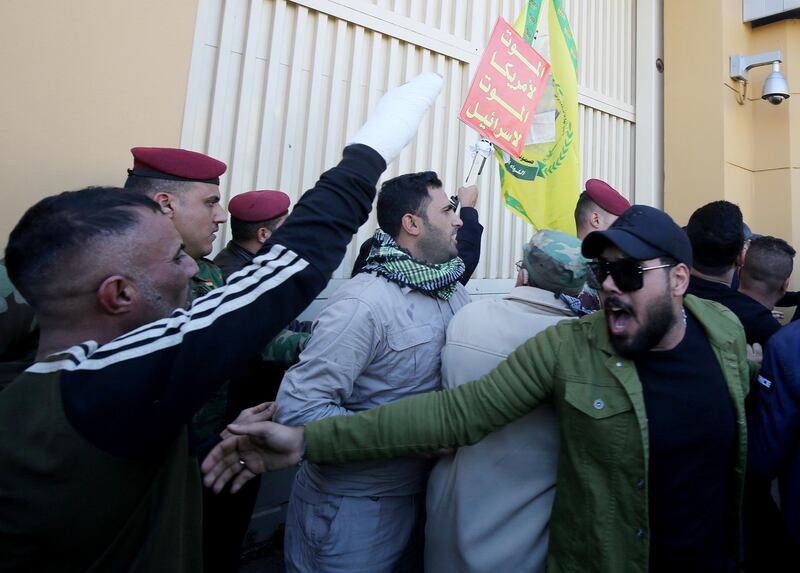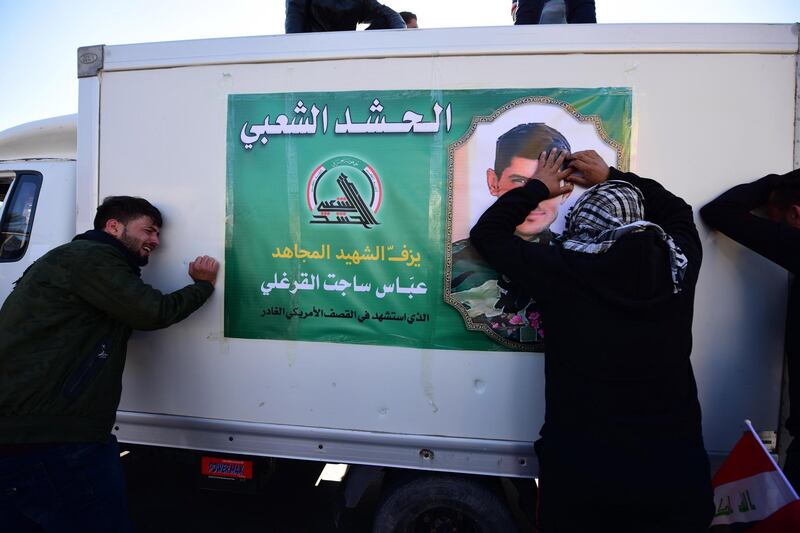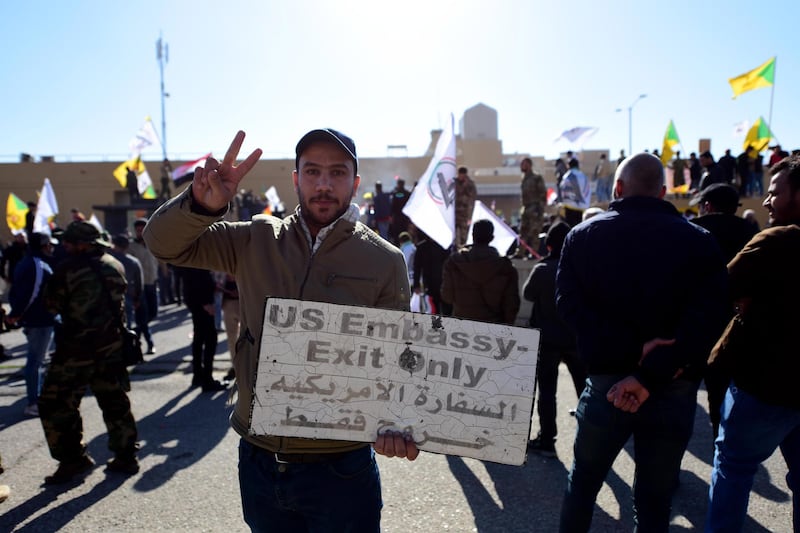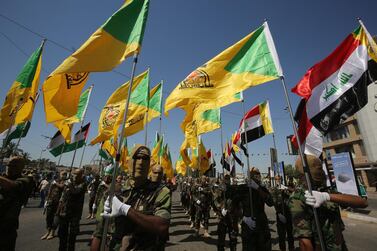Forty years after the storming of the US embassy in Tehran, dramatic footage of angry men with sledgehammers and rocks attacking the US embassy in Baghdad stunned Iraqis on the final day of a tumultuous year.
The same tactics of the Iranian revolutionaries of 1979 in the infamous American hostage crisis have been used four decades later. Thankfully, this time, there are no hostages to report.
The followers of the Iraqi militia Kataib Hezbollah, commanded by Iran, tried to hide under the cloak of “protesters” on Tuesday.
Yet their actions, including carrying the flags of the militia, quickly gave them away.
Since the start of popular protests in Baghdad and southern provinces of Iraq on October 1, no militia or political party flags have been carried.
On the contrary, it was against these very militias and their ties with Iran that protesters took to the streets.
The well-known Iraqi satirist Ahmed AlBasheer, who is considered a leading voice in the protest movement, told The National "the protesters have nothing to do with what is happening" at the embassy.
“On the contrary, protesters initially started their protests against Iranian interference," AlBasheer said. And they are tired of Iran using Iraqis as "tools" in its fights, while also rejecting "being an arena in foreign battles”.
As the events unfolded in Baghdad on Tuesday, the fear of many young Iraqis was that the attack on the US embassy would be used to smear their image.
Many took to social media and reached out to media contacts to disassociate themselves from the attack.
Furthermore, there are fears that the militias will try to use this escalation as an excuse to stamp out the protest movement.
Their efforts to reclaim the streets under the guise of “anti-American rage” will be targeted at regular Iraqis rejecting their ties to Tehran and extremism.
The US decision to strike Kataib Hezbollah on Sunday night came after a series of militia rocket attacks on Iraqi and American forces, leading eventually to the death of an American defence contractor and two Iraqi policemen in an attack on a military base in Kirkuk last week.
While the Iraqi government and leading Iraqi political forces backed by Iran failed to condemn the attack in Kirkuk, they clamoured to decry the US strikes on Kataib Hezbollah.
In another contrast showing the missteps of the Iraqi government, Iraqi security forces were seen on site at the perimeter of the US Embassy on Tuesday and yet did not stop the assault on the compound.
Militia forces were allowed to advance on the compound and attack it for hours. Either Iraqi official forces are unable to stop the militias, or they condone their actions.
The caretaker Iraqi Prime Minister Adel Abdul Mahdi remained silent for several hours before issuing a meek statement asking for “a retreat from foreign missions”. His call was not heeded.
And yet Iraqi forces have used brutal force against peaceful protesters decrying sectarianism and corruption in political circles.
Over the past three months, more than 521 Iraqis have been killed and another 21,000 wounded as a result.
Mr Abdul Mahdi announced three days of official mourning for the members of Kataib Hezbollah killed in the US strike; no such honour was given to the young protesters killed for demanding their rights.
The coming days will witness an even greater power struggle as Kataib Hezbollah and other Iran-backed militias try to impose their rule on the streets.
After weeks of killings and kidnappings, peaceful protesters who have demanded an end to militia rule will run a greater risk in continuing the demonstrations as the militias can now claim political cover for their actions after the US attacks.
A clear statement from Iraq’s leading politicians rejecting militia aggression, from the storming of embassies to kidnapping Iraqis, is sorely needed but highly unlikely.
